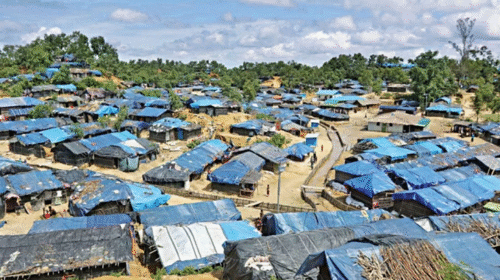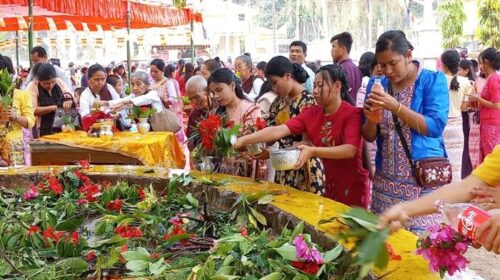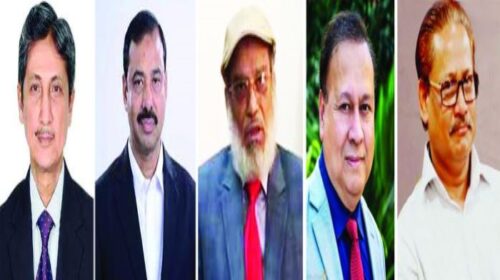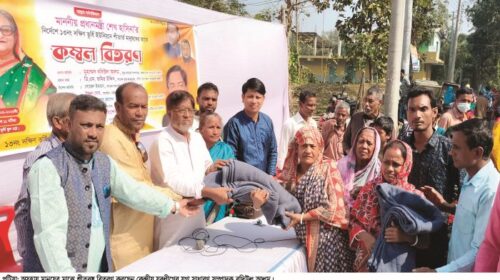Tangail Correspondent: Garo child Raj Nakarek on foot. Even two years ago, the mother tongue could not be spoken in Mandi. All the words did not come out of the throat. As mother Lipma Nakarek and father Jenawardhan Dalbat were employed in the capital, interaction with the Garo community was minimal. Raj’s classmates in school were Bengalis so he had no opportunity to practice Mandi language. Bengali is scarred in the young mind instead of mother tongue. In such a situation, Raj was admitted to Sadhu Maryam Missionary Primary School in Madhupur Upazila of his village Tangail a year and a half ago to familiarize himself with his own language and culture. There is an opportunity to study Paro language in Roman script. Raj is now fluent in his own language with perfect descriptions of odd numbers, smilingly wrapping juicy rhymes and singing melodious songs of birds, hills and flowing rivers in a sweet voice.
Mission school teacher Nija Danbat gave this information while talking about the struggle of Garo children in Madhupur forest area to learn their mother tongue. It is known that the number of Garos in Madhupur forest area is about 20 thousand. Livelihoods of the Garos have been greatly affected by the loss of forest cover and continuous population growth. Apart from the dispute over land ownership with the forest department, the Mandi language and culture are being cornered by Bengal’s influence at home. And it has a huge impact on Garo children. According to the Madhupur Upazila Primary Education Office, 3,500 Garo children study with Bengali children in government and missionary schools of 144 villages in the forest area. In the villages where few Garos live, under the pressure of school or social environment, Garo children are leaving their own language and adopting Bengali. As there is no written alphabet in Mandi, the government has arranged for the publication and distribution of textbooks in Mandi in Roman script from pre-primary to class III. School teacher Louise Nakrek said that day by day joint families are breaking up and becoming single families. Many are migrating to the city in search of livelihood. Children growing up in the sterile environment of the city are also turning away from the Mandi language. Deviating from the customs, ceremonies, thoughts, traditions and distinctiveness of one’s community. Large groups of people are unable to perceive the multi-dimensional lines of division – the characteristics that differentiate them from Bengalis. Although the physical appearance is of Mongolian style, the behavior and mentality are going to the level of Bengali or Shankar ethnic group.
Garo teacher Deepak M said that many working Garo families are now sending many children like Raj Nakarek to village schools to provide primary education in Mandi language. Institutionalization of Mandi language. Jalchhatra Corpus Rain Mission Education Officer Jeanes Richil said that a century ago, Caritas and Oxfam first launched a limited education program in the Mandi language. The government has been distributing textbooks in the Mandi language for several years, which has given some impetus to education. Munmun Nakarek, a Garo woman entrepreneur, said that children learn their first language from the family. And institutional education enriches him. A diverse language and culture is being lost or distorted as the Garos are largely indifferent to the Mandi language. Sulekha Mong, president of Achikmichik Society, said that as Garo women take control of the family in difficult times due to the matriarchal family, they are taking a leading role in institutionally educating children in Mandi language.
Madhupur Upazila Education Officer Shafiqul Islam Khan said that the government has arranged for the distribution of basic textbooks for the development of education and culture among the small ethnic groups, the Garos are one of them. The education rate of the Garos exceeds 80 percent. Now they can go a long way with education in their own language.



















